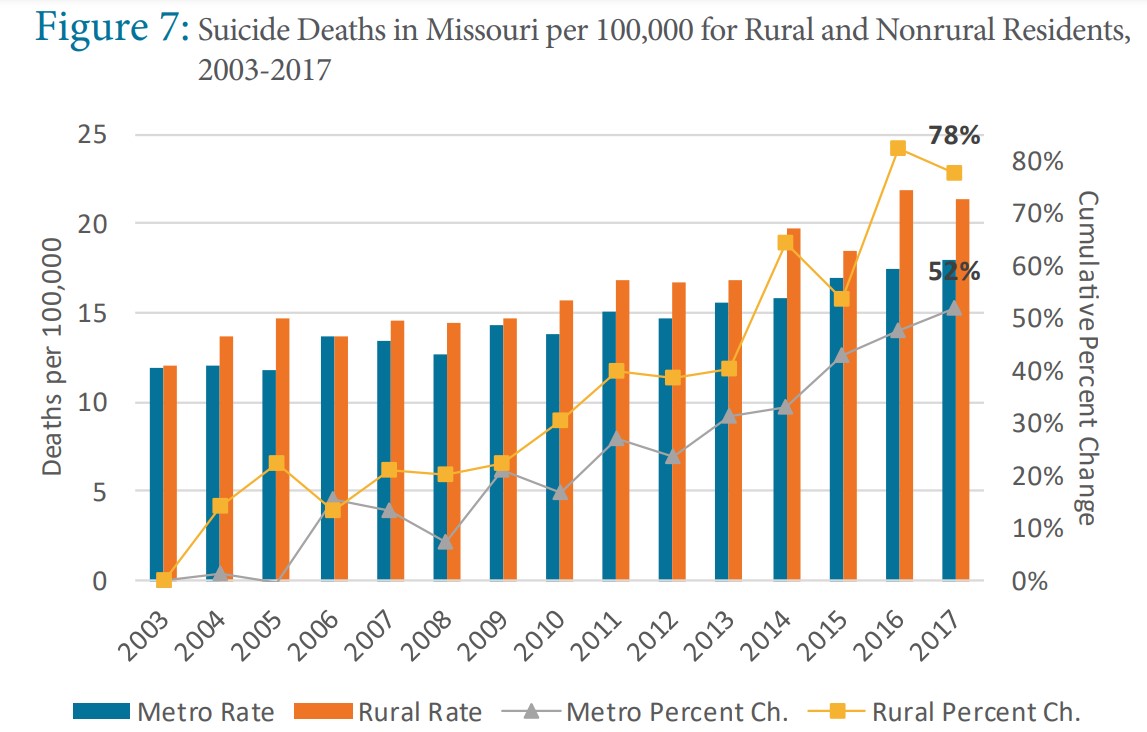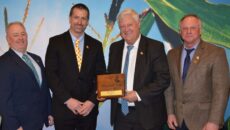Jefferson City, Mo. — The Missouri Department of Agriculture has launched a new hotline to aid farmers suffering from stress and mental health issues due to their job.
The new hotline, called the AgriStress Help hotline, is a “free and confidential service available to Missouri producers and rural families seeking mental health support,” according to a press release. The number associated with the 24/7 hotline is (833) 897-2474.
AgriStress is meant to service farmers who are in need of a quick way to access mental health help related to the stress from their farming duties.
“We know producers take pride in their ability to handle challenging circumstances, which can lead to a stigma around seeking mental health support,” Chris Chinn, director of the Missouri Department of Agriculture said. “But, it’s okay to need help. Our goal is to ensure free, confidential support is available for Missouri farmers, ranchers and rural community members through the AgriStress Helpline.”
The hotline has been in the works since earlier this year, when Gov. Mike Parson and the Department of Agriculture began looking for companies to operate a call center.
The decision came after a troubling survey in 2021 from the American Farm Bureau Federation questioned farmers about their mental health and the stigma surrounding it. The survey allowed the participating farmers to pinpoint the issues they think are causing intense stress in their lives.
According to the survey, the four biggest stressors that impact farmers’ mental health are financial issues, fear of losing the farm, uncertain future and the state of the farm economy.
The survey also states that 60% of farmers were experiencing more mental health issues in 2021 than the year before.
The survey also says that more farmers are becoming aware of the mental health resources available to them and that farmers are utilizing these resources more often. Still, there is still a lot of ground to cover when it comes to making sure farmers are able to seek mental health resources.
Data shows that rural suicides in Missouri are on a steep incline. According to a joint study that included the Missouri Farm Bureau, the Missouri Department of Mental Health and the University of Missouri, the rate of rural suicide deaths increased by 78% to 21.3 suicides per 100,000 people in 2017.
“Combined, the latest data from CDC signal the rate of rural suicide deaths in Missouri is 18% higher than the nonrural rate — and it’s growing 50% faster,” the study states.
“Stratified by gender and urbanization, rural males have the highest rate of suicide deaths in the state at 35.6 per 100,000 residents,” the study adds. This statistic is almost double the statewide rate of 18.8 per 100,000
According to the Department of Agriculture, almost 90% of the farms in Missouri are family owned. Many of the farms have been operated through generations of family. Additional stress is added for family-owned farmers, as losing a farm is more than losing a business venture, it means losing land that has been passed along for generations.
The hotline is arriving amid a difficult year for crop farmers and cattlemen. A severe drought in the southern half of the state has forced cattlemen to make hard decisions about culling cattle in the face of a spiraling beef market, causing many to take a severe loss in the middle of the year.
According to the Department of Agriculture, they have partnered with a group known as Agrisafe, a nonprofit organization that specializes in rural mental healthcare, in order to specialize the AgriStress hotline to suit the needs of farmers and other members of rural communities.
By involving Agrisafe, the department hopes to ensure that the mental health professionals of AgriStress will be more well-suited to serving the needs of rural producers than the average mental health professional.
While not a fix-all solution, there is hope that this hotline will be able to start tearing down some of the mental health inequalities found in rural areas around the state. According to the joint study, all 99 of Missouri’s rural counties have a shortage of mental health professionals.
The Department of Agriculture has more information on its website here.
If you are suffering a mental health crisis, call or text 988.
Featured Image Courtesy of the Missouri Coalition for Behavioral Healthcare
Kelton is a 2023 graduate of the University of Missouri with a Bachelor of Arts in Political Science and a Bachelor of Arts in Religious Studies. He is a native of mid-Missouri and likes to write politics at both the state and federal levels. Kelton joined the Missouri Times in April 2022






























